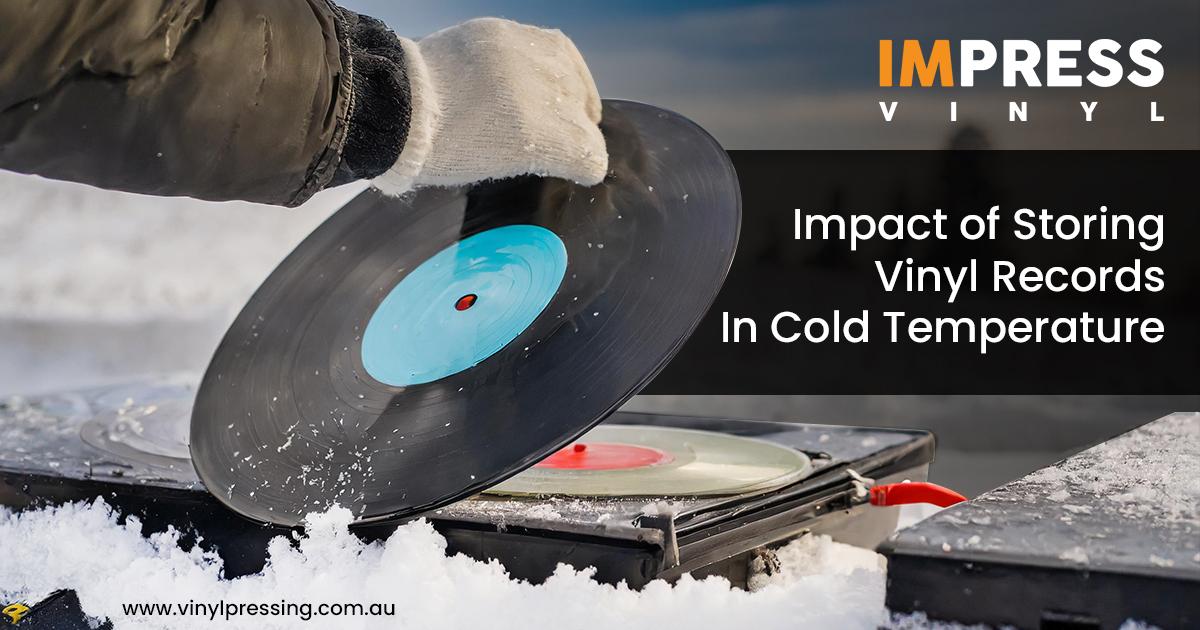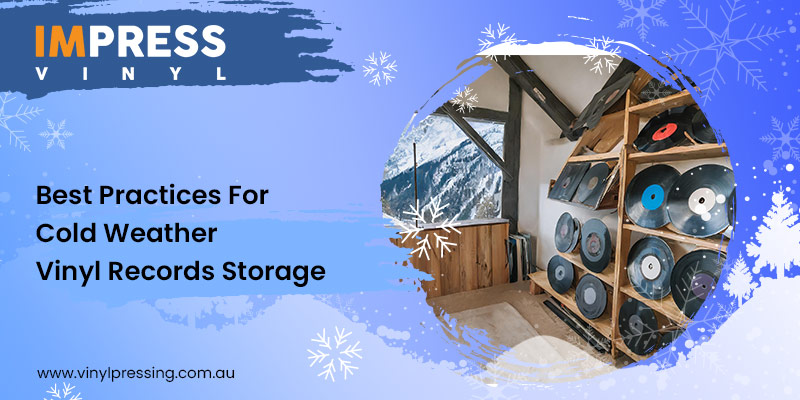Impact of Storing Vinyl Records In Cold Temperature

Does it ever happen to you to think about the vinyl records storage and maintain them in the best condition? Music lovers can collect many items, but the ultimate prize is vinyl records, which require great care to maintain vinyl records’ quality and originality.
Several factors could lead to the problem, like temperature, which is one of the most important ones. This blog will explore the detrimental effects of custom vinyl records storage under cold temperatures and will suggest how to save and preserve them.
Much the Way Vinyl Records Storage Requires Knowledge
The life span of vinyl records storage materials is solely the storage span of records to maintain them in good shape. Either you fall into the high appraisers of the valuable music, or you can stay away from it; you will still follow your music when you set up your shops that trade in these.
Why Temperature Matters
External elements can easily fit into the vinyl portion. Extreme cold and heat can cause the vinyl records to warp or crack. Moreover, continuous exposure to extreme temperatures can stimulate mold growth on the surfaces.
Low Temperatures Show Robust Effect on Vinyl Records
Positive Effects:
In the light of choice of a refrigerator room for storage of vinyl records, the vinyl records will not be exposed to direct sunlight, i.e., they will not get hot or wet. Providing a chilled ecosystem is a great weapon against spoiling reactions like warping or the colonization of molds because these reactions need more energy from higher temperatures.
In contrast, there seems to be no static deformation to maintain vinyl records, which is why they hold a long time at low temperatures.
Negative Effects:
Warping:
Vinyl records may be destroyed when stored in cold conditions. This can cause warped records, which may impact the sound and cause groove damage. Extreme cold leads to material shrinking really quickly, and as a result, the structure becomes uneven, which affects the quality of playback.
Brittle Vinyl:
Long-term exposure to cold temperatures is the key reason that records become brittle, and this makes cracking or breaking more likely. Highly fragile vinyl often breaks easily, not only during handling or spinning but also when removed, which may cause destruction.
Moisture condensation:
It can be caused by cold, followed by moisture condensation, often when records move from one condition to another. Condensation occurs mainly on the surface of albums, resulting in mold formation and vinyl degradation. Adding to this problem, moisture could also enter the vinyl record sleeves, damaging the album cover and booklets.
Best Practices For Cold Weather Vinyl Records Storage
To ensure your vinyl collection lasts a long time, it’s necessary to have an environment that can aid preservation. Here are some of the best practices to maintain vinyl records store them longer:

Maintain a stable temperature
Try to keep as much of the vinyl collection as possible in a clean, dry, and temperature-controlled environment between 65°F and 70°F (18°C and 21°C). Do not store documents in cold areas such as attics, basements, or unheated storage rooms.
Use insulation
Use insulated containers or storing shelves to add another wall barrier and prevent cold from seeping in. When choosing a place for vinyl records storage, take an inventory of cabinets or shelves that regulate temperature and humidity.
Invest in Quality Vinyl Record Sleeves
Vinyl record sleeves made of excellent quality vinyl can protect the record from moisture and temperature variations. Select polyethylene or polypropylene sleeves for a higher shielding level than paper or cardboard sleeves.
Allow acclimatization
Make sure that vinyl records storage has to be in a cold environment are given time to return to room temperature before playback occurs. Sudden temperature changes are likely the reason the components are warped or damaged.
Monitor humidity levels
Preserve the optimum humidity between 40% and 50% to tackle moisture-related problems such as mold growth and structural deterioration. Observe humidity with hygrometers, and if needed, use dehumidifiers and humidifiers.
Avoid Direct Sunlight
Just as cold weather can be hard on vinyl, ultraviolet rays can be as harmful. To avoid heat and fading damage, the safest place for your records is away from open windows and other sources of light, heat, or direct sunlight.
Custom Vinyl Records Storage Solutions
Impress Vinyl helps music record collectors who appreciate vinyl record customization achieve it by providing custom artwork and packages. Moreover, our custom vinyl records are made from top-notch materials and will be stored in built-in storage, guaranteeing long-term preservation.
Along your way toward the right vinyl set, choosing the right accomplice is vital, too. Impress Vinyl already holds a reputation for its quality and craftsmanship in the industry across Melbourne and Australia. Impress Vinyl serves as a great support for vinyl record craftsmanship and preservation.
We provide custom vinyl records and covers of high quality at a great price to help you preserve your collection and increase listening satisfaction.
To summarize, following good vinyl record storage steps and maintaining the vinyl records in good condition extends their life and improves your listening experience, allowing you to enjoy the rich sounds of your favorite albums for years to come.
Are you ready to start the storage process for your vinyl records? Look at the selection of vinyl record sleeves and storage products offered by Impress Vinyl across Australia and put your treasured records in proper care today!